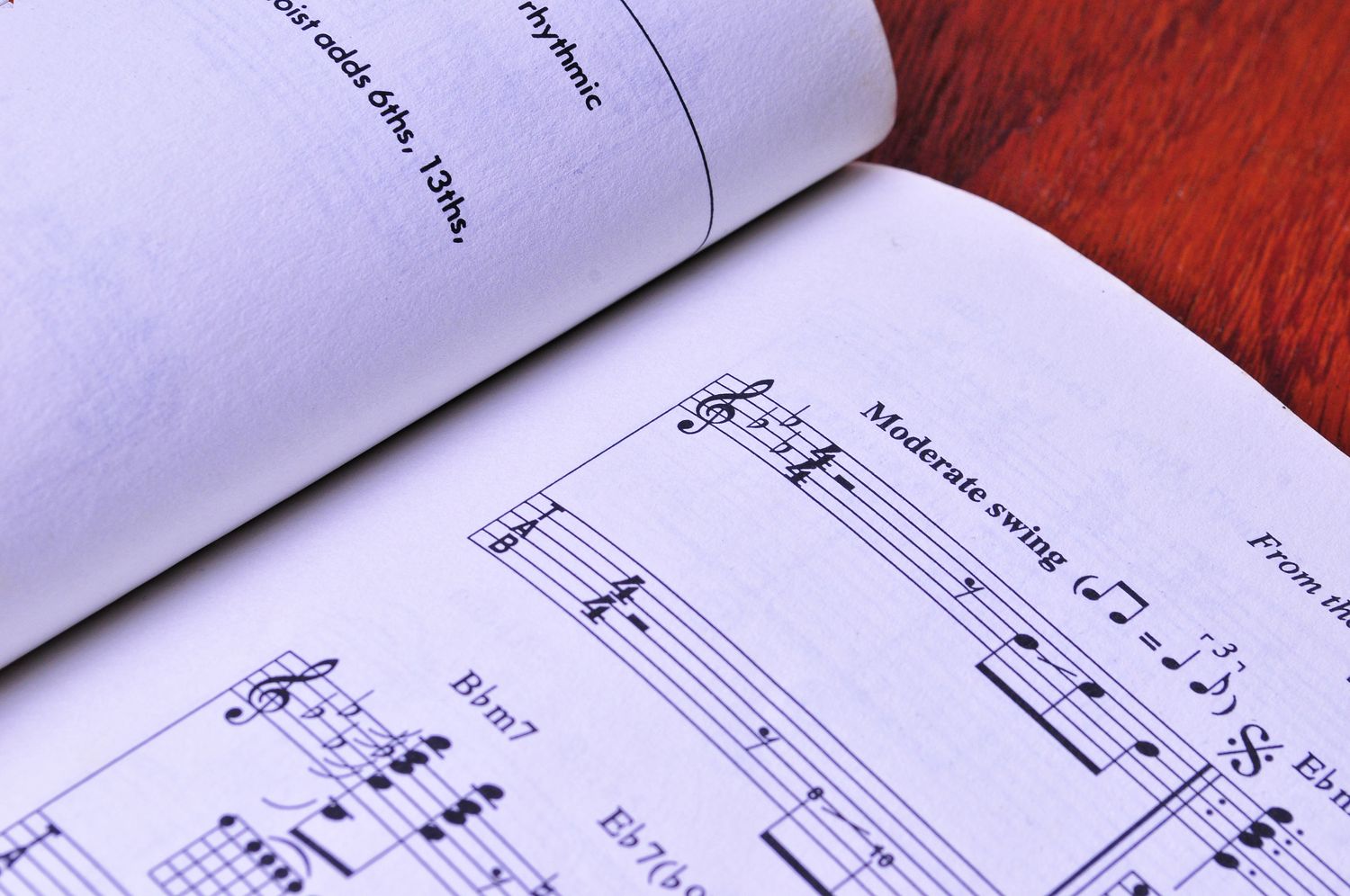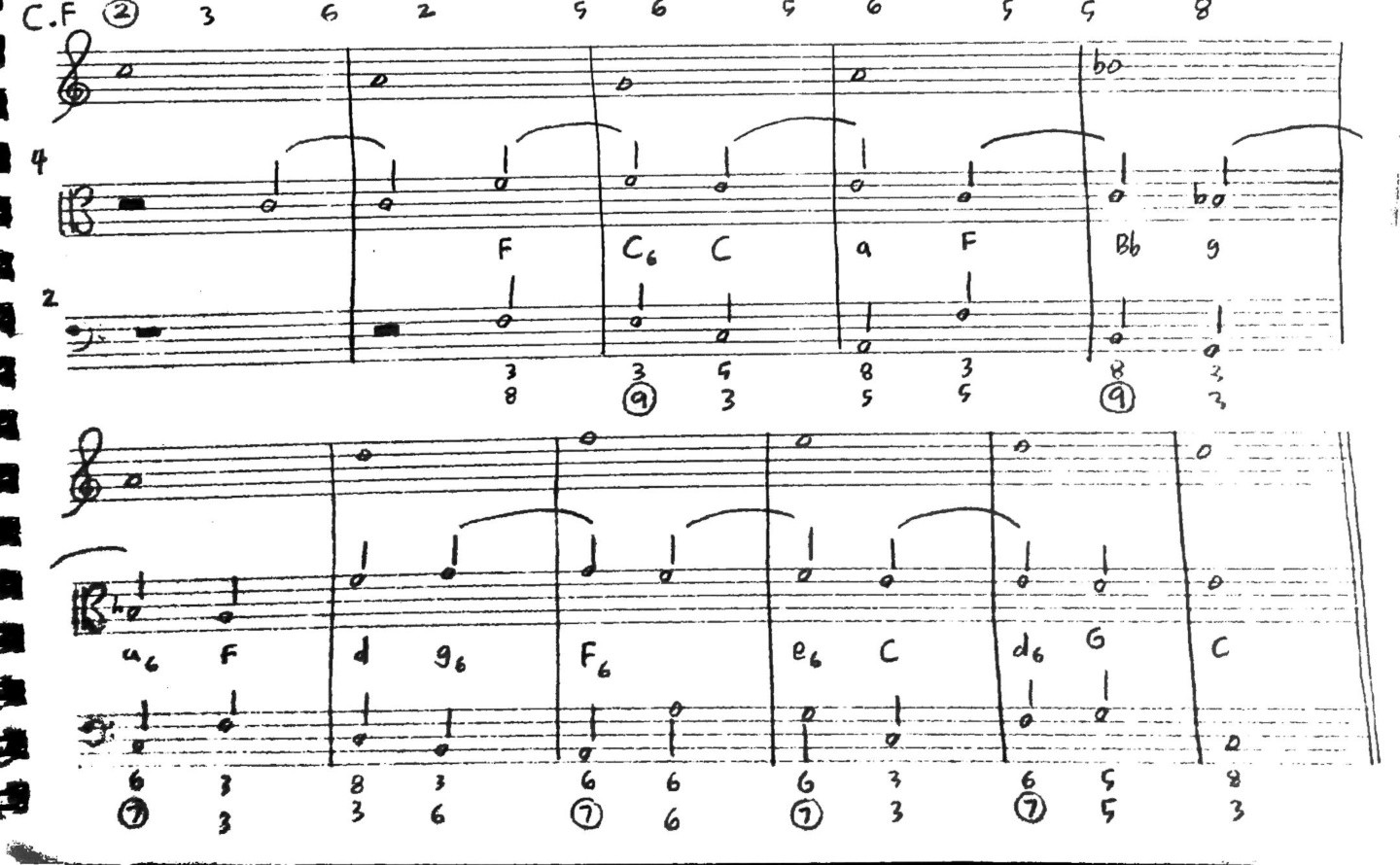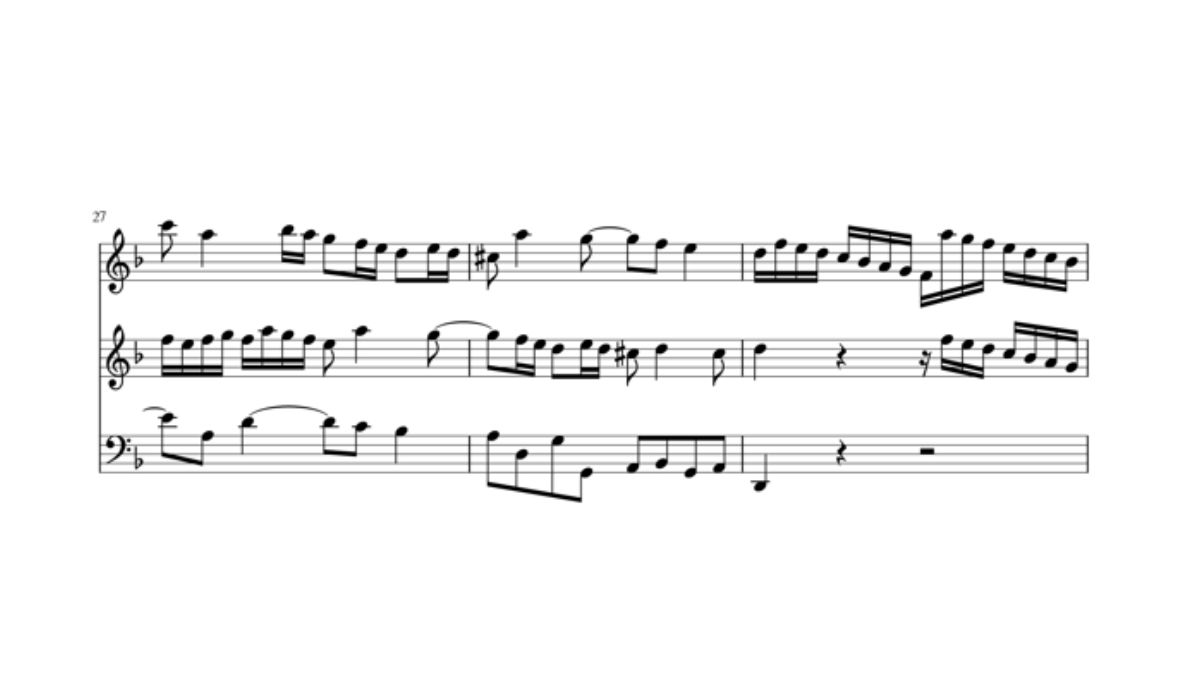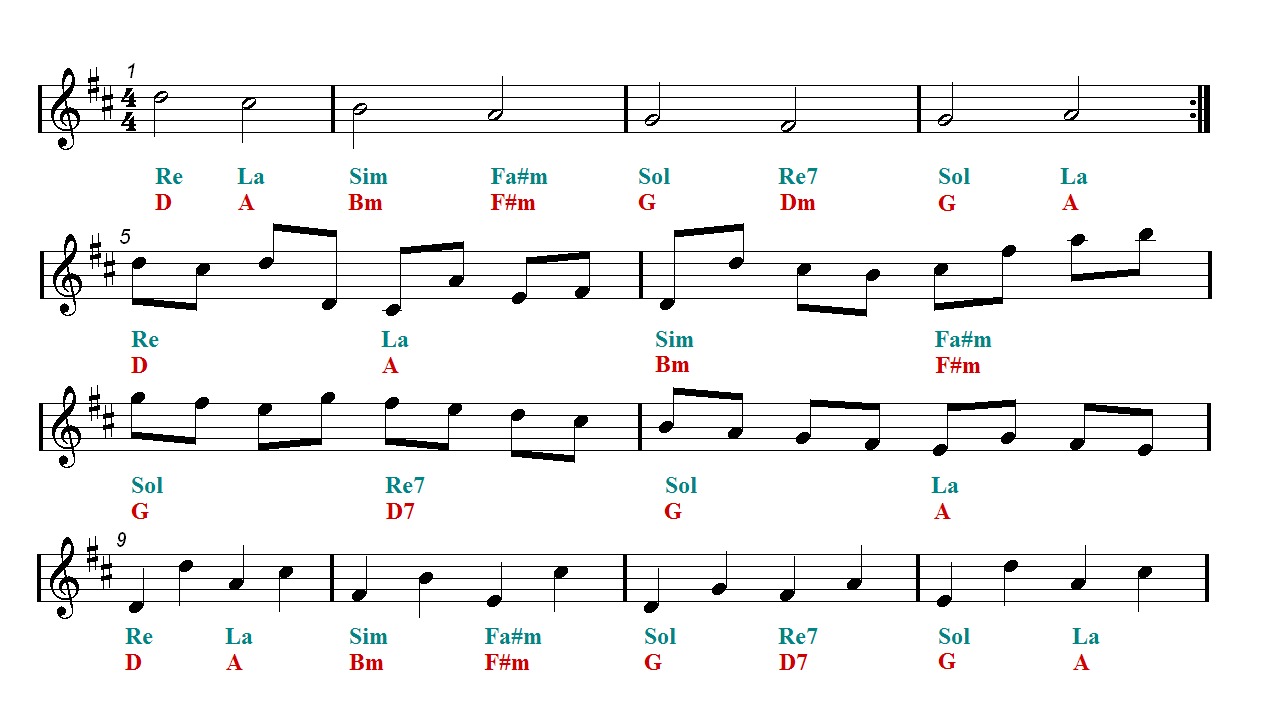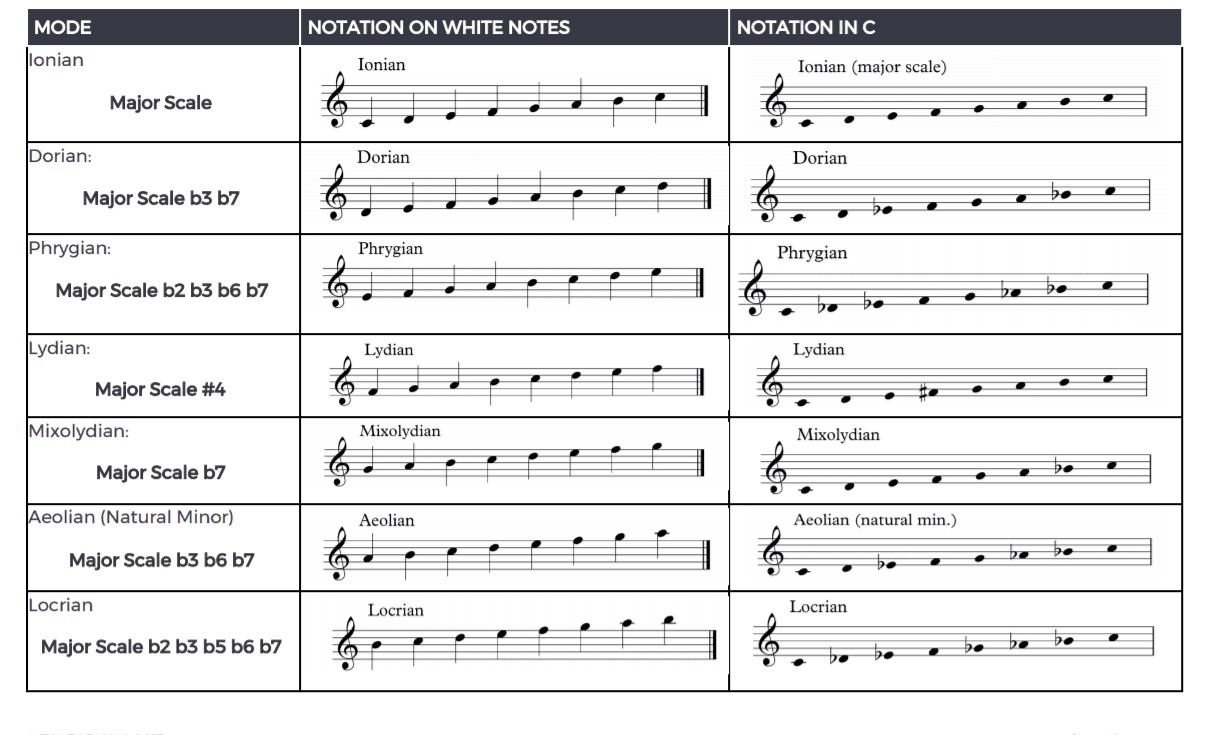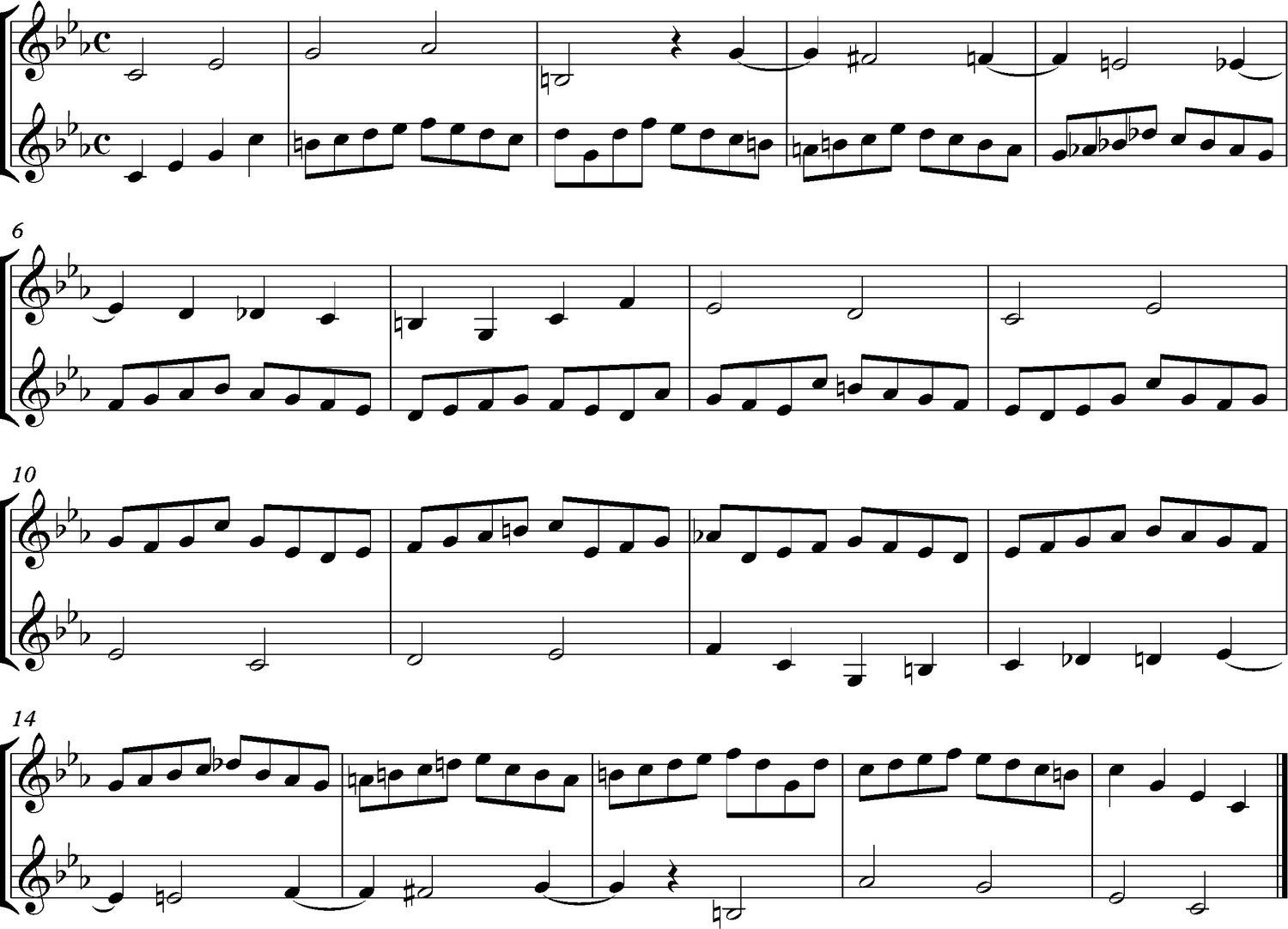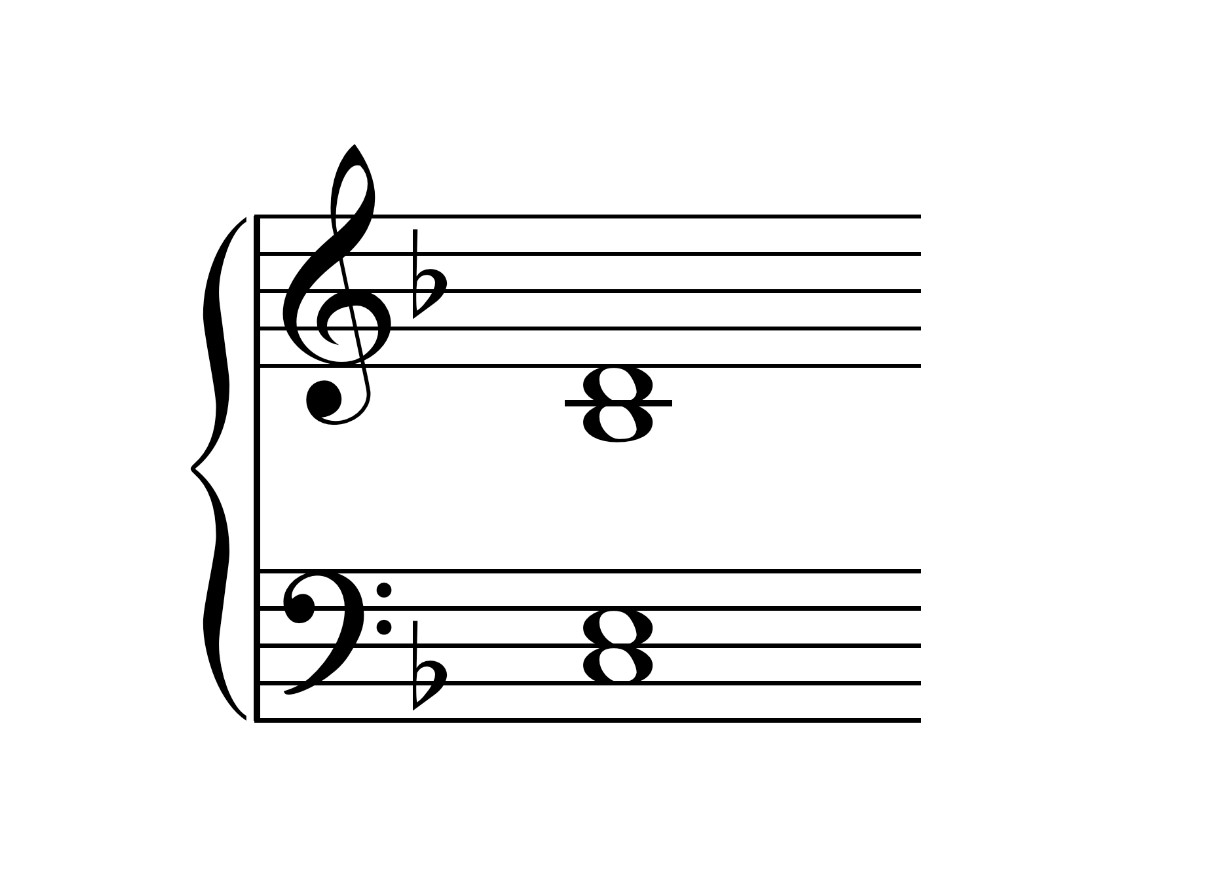Home>Production & Technology>Music Theory>What Is A Music Theory Major


Music Theory
What Is A Music Theory Major
Published: January 31, 2024
Explore the fascinating world of a music theory major and unlock the secrets behind harmonies, chords, and musical structures with a deep understanding of music theory.
(Many of the links in this article redirect to a specific reviewed product. Your purchase of these products through affiliate links helps to generate commission for AudioLover.com, at no extra cost. Learn more)
Table of Contents
Introduction
Music theory is the foundation of the language of music. It provides the framework for understanding how music is constructed and how different elements such as melody, harmony, rhythm, and form work together to create a cohesive piece of music. For those who have a passion for music and a desire to delve deeper into its inner workings, pursuing a music theory major can be a rewarding and enriching experience.
Whether you’re an aspiring composer, a performer looking to gain a deeper understanding of the music you play, or simply someone who is captivated by the intricacies of music, a music theory major can open doors to a world of knowledge and opportunities.
In this article, we will explore what exactly music theory is, the reasons why someone might choose to major in music theory, the skills and knowledge required, the typical curriculum for a music theory major, and the potential career paths that can be pursued after graduation.
So, if you’ve ever wondered what goes on behind the scenes in the world of music, and how the notes on a page come together to create a masterpiece, join us as we embark on a journey into the fascinating world of music theory.
What is Music Theory?
Music theory is the study of the principles and concepts that govern music. It encompasses various elements such as melody, harmony, rhythm, form, and structure. It provides a framework for understanding how music is organized and created, and allows musicians to communicate and analyze musical ideas effectively.
At its core, music theory aims to answer fundamental questions about music, such as why certain combinations of notes sound pleasing to the ear, how chords and harmonies function within a piece of music, and how different rhythms and time signatures create different musical expressions. It explores the relationships between different musical elements and helps musicians make informed decisions when composing, performing, or analyzing music.
Music theory is not limited to a specific genre or style of music, as its principles can be applied to various forms of music from classical to jazz, from pop to electronic music. It serves as a universal language that allows musicians to exchange ideas, collaborate, and understand the underlying structure of different musical compositions.
Studying music theory involves learning about scales, intervals, chords, progressions, cadences, and other essential elements of music. It also involves developing skills in sight-reading, ear training, and analysis. By understanding these concepts and techniques, musicians can enhance their musicality, improvisation skills, and compositional abilities, enabling them to express themselves creatively and artistically.
While music theory is often associated with composers and music educators, it is equally valuable for performers who want to deepen their understanding of the music they play. It provides insights into the composer’s intentions, allowing performers to interpret and convey the musical message with greater depth and authenticity.
Overall, music theory is the backbone of music. It provides a solid foundation for musicians, enabling them to explore, create, and appreciate music at a much deeper level. Whether through analyzing a symphony, harmonizing a melody, or improvising a solo, music theory empowers musicians to unlock the full potential of their musical abilities.
Why Choose a Music Theory Major?
Pursuing a music theory major offers a plethora of benefits for those with a passion for music and a desire to delve deeper into its intricacies. Here are some compelling reasons why someone might choose to pursue a music theory major:
- Deepen your understanding of music: A music theory major provides an in-depth exploration of the principles and concepts that govern music. It allows you to analyze and dissect music at a level that goes beyond mere surface-level enjoyment. By understanding the inner workings of music, you can develop a profound appreciation for different genres and styles, and gain insight into the intentions and techniques of composers.
- Enhance your musicianship: Studying music theory enriches your musicianship by honing your musical ear, improving your ability to read and interpret musical notation, and expanding your knowledge of musical repertoire. It equips you with the skills to analyze and understand complex compositions, enabling you to perform with greater depth, expression, and accuracy.
- Expand your compositional abilities: If you aspire to be a composer, a music theory major can be immensely beneficial. It provides you with the tools to craft well-structured and harmonically rich compositions. You will learn about different musical forms, chord progressions, and melodic development, enabling you to create original and compelling musical works.
- Prepare for graduate studies in music: A music theory major lays a strong foundation for further studies in music at the graduate level. Whether your goal is to pursue a master’s degree or a doctoral degree in music theory, composition, or musicology, a music theory major equips you with the necessary knowledge and skills to excel in advanced academic pursuits.
- Develop critical thinking and analytical skills: Music theory involves the analysis and interpretation of musical elements and structures. This process cultivates critical thinking skills, allowing you to identify patterns, make connections, and draw insights from complex musical compositions. These analytical skills are transferrable and can be applied to other areas of study and even non-musical contexts.
- Pursue a variety of career paths: While a music theory major may seem specialized, it opens doors to a variety of career opportunities. Graduates can pursue careers as music educators, private instructors, music researchers, music librarians, music editors, music critics, and more. Additionally, the skills and knowledge gained from a music theory major can be transferrable to other industries such as media, entertainment, and technology.
Overall, choosing a music theory major provides a comprehensive and well-rounded education in music. It allows you to delve deeper into the intricacies of music, enhance your musicianship, and opens up a wide range of potential careers in the music industry and beyond. So, if you have a deep passion for music and a curiosity to explore its inner workings, a music theory major may be the perfect choice for you.
Skills and Knowledge Required
A music theory major requires a combination of skills and knowledge to delve into the complex world of music theory. Here are the key skills and knowledge areas that are typically required:
- Earned Experience in Music: Prior experience in music, such as playing an instrument or singing, is beneficial when pursuing a music theory major. Having a solid foundation in music performance allows students to apply theoretical concepts practically and understand how music theory relates to their instrument of choice.
- Musical Literacy: A solid understanding of reading and interpreting music notation is essential. This includes reading both treble and bass clef, understanding key signatures, time signatures, and rhythms. Proficiency in sight-reading and ear training exercises is also important to develop aural skills and recognize intervals, scales, and chords.
- Analytical Skills: Developing analytical skills is a critical component of studying music theory. This involves breaking down musical compositions and analyzing their elements such as melody, harmony, rhythm, form, and structure. Students must be able to identify and describe these elements and their relationships, and understand how they contribute to the overall musical experience.
- Mathematical Aptitude: While not always explicitly recognized, music theory concepts often involve mathematical relationships. Understanding basic mathematical principles, such as ratios, proportions, and fractions, can aid in comprehending concepts like intervals, chord progressions, and time divisions.
- Problem-Solving Skills: Music theory presents complex musical puzzles that require problem-solving skills. Students must analyze musical challenges, identify potential solutions, and apply theoretical concepts to arrive at creative and innovative solutions. This skill is beneficial not only in music theory but also in various aspects of musical performance and composition.
- Keyboard Skills: Proficiency in playing the keyboard is often required in music theory coursework. The keyboard provides a visual and tactile representation of music theory concepts, facilitating the understanding of scales, intervals, chord progressions, and harmonic relationships. It also aids in composition and arrangement tasks.
- Writing Skills: Effective communication is crucial for presenting research, writing analysis papers, and documenting music theory concepts. Students should possess strong writing skills to clearly articulate their thoughts, ideas, and analysis in a concise and organized manner.
While these skills are important for success in a music theory major, it is worth noting that they can be developed and refined through regular practice, coursework, and practical application. It is never too late to start learning and honing these skills, as the journey of studying music theory is a continuous process of growth and exploration.
By acquiring these skills and knowledge, students will gradually become adept at deciphering the language of music, analyzing its inner workings, and applying these principles to their own musical endeavors.
Music Theory Major Curriculum
A music theory major curriculum is carefully designed to provide students with a solid foundation in theory, analysis, and composition. While the specific courses may vary from institution to institution, the following are common subjects that students can expect to encounter in a music theory major:
- Fundamentals of Music Theory: This introductory course covers the basic elements of music theory, including notation, scales, intervals, and basic harmonic progressions. Students learn how to read and interpret musical notation, analyze simple compositions, and understand the fundamental principles of music structure.
- Ear Training and Sight-Singing: This course focuses on developing students’ listening skills and ability to recognize and reproduce musical intervals, melodies, harmonies, and rhythms. Students practice sight-singing exercises to improve their ability to read and perform music at sight.
- Advanced Harmony and Counterpoint: Building upon the fundamentals of music theory, this course delves deeper into the study of harmony and counterpoint. Students learn about chord progressions, voice leading principles, and explore more complex harmonic structures.
- Form and Analysis: This course explores the principles of musical form and teaches students how to analyze different musical structures such as sonata form, rondo form, and theme and variations. Students learn to identify musical themes, understand the organization of musical sections, and analyze the overall structure of compositions.
- Orchestration: This course focuses on the study of instrument families, ranges, and techniques. Students learn how to arrange and score music effectively for different ensembles and gain a deeper understanding of the timbral possibilities offered by various instruments.
- Composition: The composition courses allow students to apply theoretical concepts and unleash their creativity by composing original music. Students are guided through various compositional techniques, styles, and forms, and receive feedback on their compositions from instructors and peers.
- Musical Analysis: This course involves in-depth analysis of musical compositions from various genres and styles. Students learn how to interpret and dissect different musical elements, identify stylistic characteristics, and understand the historical context behind the music.
- Music History: Music history courses provide a comprehensive overview of the development of music from different periods and cultures. Students explore significant composers, compositions, and genres, and gain a deeper understanding of how music has evolved over time.
- Advanced Topics in Music Theory: These upper-level courses cover specialized topics such as twentieth-century music, jazz theory, modal harmony, and electronic music. Students have the opportunity to expand their knowledge in specific areas of interest.
It is important to note that the curriculum may also include performance-based courses such as ensemble participation, private lessons, and recitals, as a well-rounded understanding of music theory is often enhanced through practical application and performance.
Throughout the music theory major curriculum, students have opportunities to refine their analytical, critical thinking, and creative skills through assignments, projects, and collaborative activities. The curriculum is designed to provide a comprehensive education in music theory, equipping students with the necessary knowledge, skills, and experiences for a successful music career.
Career Opportunities for Music Theory Majors
A music theory major can lead to a wide range of career opportunities within and beyond the realm of music. While some may associate music theory primarily with academic roles, the skills and knowledge gained throughout the program can be applied to various professions. Here are some potential career paths for music theory majors:
- Music Educator: With a music theory major, you can pursue a career as a music teacher at various levels, including elementary, secondary, and post-secondary education. As a music educator, you can teach music theory, composition, choir, band, or orchestra, instilling a deep understanding and appreciation for music in your students.
- Private Music Instructor: Many music theory majors choose to offer private music lessons. By leveraging your expertise in music theory, you can provide one-on-one instruction to students of different ages and skill levels in areas such as voice, piano, guitar, or any other instrument you specialize in.
- Music Director or Conductor: Music theory majors with strong leadership and organizational skills can pursue roles as music directors or conductors for choirs, orchestras, or bands. As a music director, you would be responsible for selecting repertoire, leading rehearsals, and conducting performances.
- Composer or Arranger: A music theory major equips you with the compositional skills and understanding of musical structure to create original compositions or arrangements. You can work as a freelance composer or arranger, collaborating with musicians, filmmakers, and game developers to provide custom music.
- Music Researcher or Musicologist: For those interested in scholarly pursuits, a music theory major can be a stepping stone to a career in music research or musicology. You can conduct research, write academic papers, and contribute to the understanding and preservation of musical heritage.
- Music Librarian: Music theory majors can find opportunities in libraries and archives, organizing and managing collections of musical scores, recordings, and books. As a music librarian, you would assist researchers, musicians, and students in accessing relevant resources and providing guidance on music-related inquiries.
- Music Critic or Journalist: With your deep knowledge of music theory and the ability to articulate your thoughts effectively, you can pursue a career as a music critic or journalist. You could write reviews, interviews, or feature articles for music publications, websites, or newspapers, sharing your insights and analysis with a broader audience.
- Music Publisher or Editor: Music theory majors can work in music publishing houses or as freelance editors, where you would be responsible for reviewing, editing, and proofreading musical scores, textbooks, and instructional materials before they are published.
- Audio Engineer or Sound Designer: The skills acquired during a music theory major, such as an understanding of acoustics and musical structures, can be valuable in the fields of audio engineering and sound design. You can work in recording studios, broadcast facilities, or gaming companies, creating and shaping soundscapes.
These are just a few examples of the diverse career opportunities available to music theory majors. The skills and knowledge acquired throughout the program provide a strong foundation for pursuing careers within the music industry, education, research, media, and beyond. By combining your musical expertise with other skills and interests, you can carve out a unique and fulfilling career path.
Conclusion
Choosing to pursue a music theory major can be a transformative and enriching experience for those with a deep passion for music. Through the study of music theory, students gain a comprehensive understanding of the intricate language of music, honing their analytical skills, and expanding their creativity and musicianship.
A music theory major opens up a world of possibilities. It provides a solid foundation in the principles and concepts that govern music, allowing students to delve into the inner workings of musical compositions, analyze their structures, and create their own original works. The skills and knowledge gained throughout the program can be applied to various careers within the music industry, education, research, and other related fields.
Moreover, a music theory major cultivates valuable transferrable skills. Students develop critical thinking, problem-solving, and communication skills, which are applicable in many disciplines and industries. The ability to analyze and interpret complex musical compositions fosters a deep appreciation for the arts and enhances cultural understanding.
While a music theory major requires dedication and hard work, the rewards are immeasurable. It enables students to embark on a lifelong journey of musical discovery, constantly expanding their horizons and deepening their understanding of this universal language.
So, if you have a love for music, a curiosity for its inner workings, and a desire to explore the depth and complexity of musical compositions, a music theory major may be the perfect path for you. Embrace the opportunity to unlock the secrets of music, to create, analyze, and communicate through this powerful medium – and experience the joy and fulfillment that comes from immersing yourself in the world of music theory.

